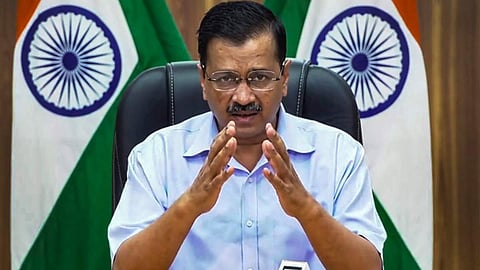

Teachers of Delhi University have taken to protest yet again against the delay of release in salaries of staff at 12 DU colleges run by the Delhi government. The Delhi University Teachers' Association has called for a candlelight vigil at the residence of the Chief Minister of Delhi, Aravind Kejriwal today, June 29, from 5:30 PM. They have also announced that all classes will be suspended from 4 PM onwards.
What irks teachers is the fact that they are being forced to demonstrate for the release of salaries, which they point out is basic remuneration for the services they are offering. "Having to protest for salaries every time is inexplicable. We're not even asking for improvement in the teaching-learning environment or service condition, or even urgent infrastructure issues. Teachers and other staff members are being forced to borrow money to sustain themselves. And for outstation employees, even that ecosystem does not exist. From time to time, teachers have gone to the courts in order to make the Delhi government pay their pending salaries. That reflects really negatively on the government," says Dr Abha Dev Habib, Professor at Miranda House, DU, and President of the Democratic Teachers' Federation, adding that teachers can do nothing but protest democratically, even though the problem has persisted for more than three years now.
Prof AK Bhagi, President of the DUTA, expresses concerns over budget cuts for these colleges. "Every quarter, they release an amount less than what is required. The deficit increases. Colleges are not able to pay salaries. We demonstrate and pressurise the government, after which they release the salaries, and even then arrears are not cleared," he claims.
The teachers fear that the Delhi Government is pushing for privatisation of higher education in the state. AK Bhagi adds, "Their model for higher education is the self-reliant model. Take the example of the Delhi College of Engineering and the Netaji Subhas Institute of Technology which have been privatised under this model. Their annual fee now is anywhere between 1 to 2.5 lakh. Charging fees from the students to maintain the college seems to be their strategy right now. They are trying to do the same with the College of Arts which is being merged with Dr Bhim Rao Ambedkar University."
Prof Habib seconds this point, and says, "While the Delhi government is working hard to promote the 'Delhi Model of school education' and pouring money into it, their model for higher education seems to be privatisation." She suggests that it is high time the government calls a meeting with the Vice-Chancellor Yogesh Singh and the principals of these colleges in order to discuss this issue and reach a one-time solution.
The government has also defaulted heavily in the maintenance of the 12 colleges it is supposed to fund entirely, says Prof Bhagi. "Girls colleges such as Aditi Mahavidyalaya and the Bhagini Nivedita College are in dire need of an upgrade. They don't have proper toilets, the hygiene situation is bad and the building itself is dilapidated. Colleges struggle to pay water and electricity bills and property tax, and are running entirely on the fee collected from the students," he claims.
At the centre of the protests today is the delay in the release of salaries for the teachers and other staff. And while infrastructure and other issues loom large, they have been relegated to the background for now.
